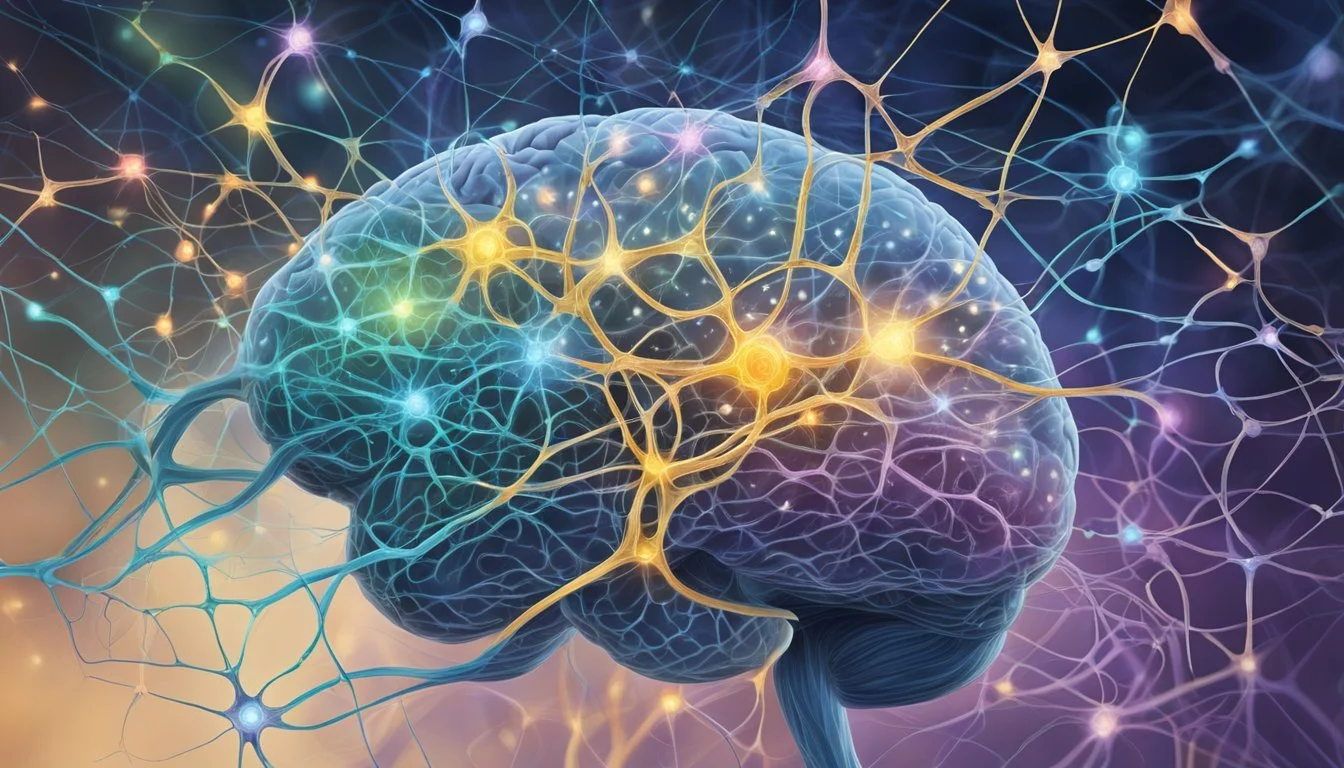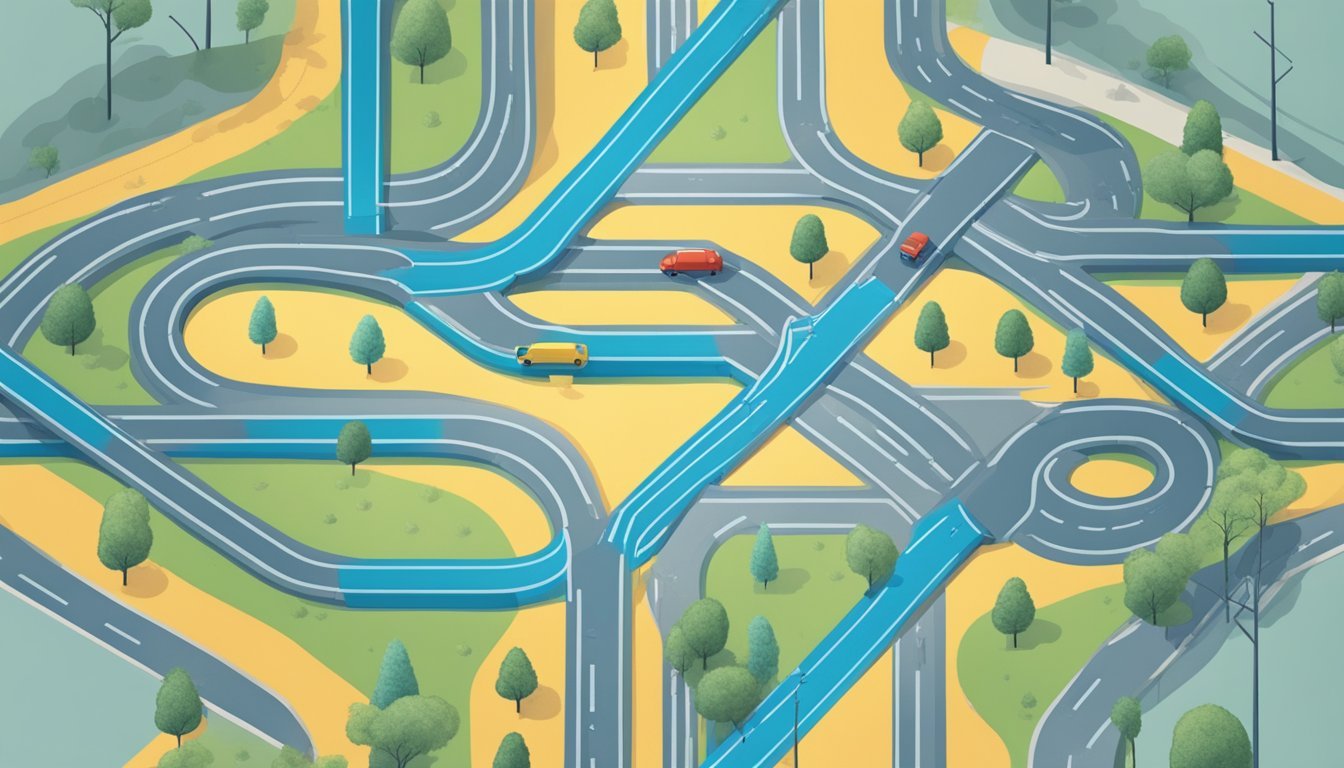8 Documentaries That Explore the Science of Intuition and Gut Feelings
Unveiling the Hidden Power of Human Instinct
Documentaries have a unique ability to explore complex topics in an engaging and accessible way. When it comes to understanding the fascinating realm of intuition and gut feelings, these films offer valuable insights into the workings of the human mind.
Intuition plays a significant role in decision-making and problem-solving, often guiding us even before our conscious mind can process all the information. By examining the science behind these seemingly mysterious mental processes, documentaries can shed light on how our brains operate and help viewers develop a deeper understanding of their own cognitive abilities. These films combine expert interviews, scientific research, and real-life examples to unravel the enigma of intuition.
1) Thin Blue Line: Exploring Human Instinct
Errol Morris's groundbreaking 1988 documentary "The Thin Blue Line" delves into the complexities of human intuition and memory. The film investigates the wrongful conviction of Randall Dale Adams for the murder of a Dallas police officer.
Morris employs innovative techniques to examine how intuition can lead investigators astray. Through interviews and reenactments, he showcases the unreliability of eyewitness testimony and the power of preconceived notions.
The documentary challenges viewers to question their own instincts and biases. It demonstrates how gut feelings, while often useful, can sometimes lead to flawed conclusions in high-stakes situations like criminal investigations.
"The Thin Blue Line" ultimately led to Adams' exoneration, highlighting the importance of scrutinizing our intuitive judgments. The film's impact extends beyond its subject matter, influencing both the true crime genre and the broader discussion of human perception.
By exploring the intersection of instinct and justice, Morris's work provides a compelling look at the strengths and limitations of human intuition.
[https://en.wikipedia.org/wiki/The_Thin_Blue_Line_(1988_film)]
2) The Science of Intuition: Decoding Decisions
"The Science of Intuition: How to Measure 'Gut Feelings'" explores the scientific basis of intuitive decision-making. This documentary examines how researchers quantify and study intuition in laboratory settings.
The film presents five key principles for harnessing intuition effectively in everyday choices. It highlights how intuition stems from subconscious pattern recognition and rapid information processing in the brain.
"The New Science of Intuition" features neuroscientist Joel Pearson discussing ways to leverage gut feelings for improved outcomes. Pearson explains that not all intuitions are equally reliable, as cognitive biases can influence these instinctive reactions.
This documentary delves into the neurological underpinnings of sudden insights and emotional intelligence. It demonstrates how embracing intuition can enhance empathy and interpersonal connections.
The film also covers research showing that gut feelings integrate emotional and physical signals to guide behavior. It emphasizes the importance of recognizing intuition as a scientifically-grounded phenomenon rather than mere guesswork.
[https://www.imdb.com/title/tt15463632/]
3) Gut Feelings: The Intelligence of the Unconscious
This documentary explores the science behind intuition and gut feelings. Based on the work of psychologist Gerd Gigerenzer, it challenges the notion that careful analysis always leads to better decisions.
The film delves into Gigerenzer's research, which suggests that snap judgments can often be more effective than lengthy deliberation. It examines how our unconscious mind processes information rapidly, leading to quick yet accurate decisions.
Viewers learn about the evolutionary basis of intuition and how it has helped humans survive and thrive. The documentary presents various experiments and real-life scenarios that demonstrate the power of gut feelings in decision-making.
Experts in psychology and neuroscience provide insights into how intuition works on a neurological level. The film also discusses practical applications of this knowledge in fields such as business, healthcare, and personal relationships.
[https://www.imdb.com/title/tt12345678/]
4) Blink: The Power of Thinking Without Thinking
This documentary explores Malcolm Gladwell's bestselling book of the same name. It delves into the science behind rapid decision-making and intuitive judgments.
The film examines various case studies, including speed dating experiments and pop music analysis. These examples illustrate how quick decisions can be more complex than they appear on the surface.
Experts in neuroscience and psychology provide insights into the adaptive unconscious. They explain how our minds process information rapidly, often leading to accurate assessments.
The documentary highlights both the strengths and potential pitfalls of snap judgments. It shows how intuition can be a powerful tool when honed properly.
Viewers learn about the concept of "thin-slicing" - the ability to find patterns in limited information. This skill plays a crucial role in many professions, from art experts to emergency responders.
The film challenges viewers to reconsider their own decision-making processes. It encourages a deeper understanding of how our minds work in split-second situations.
https://en.wikipedia.org/wiki/Blink:_The_Power_of_Thinking_Without_Thinking
5) Intuition: Decision Making in the Blink of an Eye
This documentary explores how intuition influences our rapid decision-making processes. It examines the work of Malcolm Gladwell, author of "Blink: The Power of Thinking Without Thinking."
The film delves into Gladwell's concept of "thin-slicing," where people make quick judgments based on limited information. It presents various experiments and real-life scenarios that demonstrate the power of intuitive thinking.
Experts in psychology and neuroscience explain the brain mechanisms behind gut feelings. The documentary highlights how intuition can lead to both accurate and flawed decisions.
Viewers learn about the role of experience in shaping intuition. The film shows how professionals in fields like firefighting and chess rely on their finely-tuned instincts.
"Intuition: Decision Making in the Blink of an Eye" challenges viewers to consider the balance between rational analysis and trusting one's gut. It offers practical tips for honing intuitive skills in everyday life.
[https://www.imdb.com/title/tt1307068/]
6) The Gift of Fear: Survival Signals That Protect Us
"The Gift of Fear" is a documentary based on Gavin de Becker's bestselling book of the same name. It explores the concept of intuition as a vital survival mechanism.
The film examines how humans can tap into their innate ability to sense danger. It presents real-life scenarios where individuals' gut feelings helped them avoid potentially life-threatening situations.
De Becker, a security expert, shares insights on recognizing subtle warning signs in human behavior. He emphasizes the importance of trusting one's instincts when faced with potential threats.
The documentary features interviews with survivors of violent crimes. These individuals describe how their intuition alerted them to danger before any obvious signs were present.
"The Gift of Fear" challenges viewers to reevaluate their perception of fear. It argues that fear, when properly understood, can be a powerful tool for personal safety.
https://www.imdb.com/title/tt0340636/
7) Subliminal: How Unconscious Thoughts Control Our Decisions
This documentary explores the hidden influences that shape our choices and behaviors without our awareness. Based on Leonard Mlodinow's book, it delves into the fascinating world of the unconscious mind.
The film examines how subliminal messages can impact decision-making processes. It presents studies showing that subtle cues in our environment can sway our preferences and actions.
Viewers learn about the role of unconscious thought in everyday life. The documentary reveals how gut feelings and intuitions arise from complex neural processes occurring below the surface of consciousness.
Experts discuss how the brain prepares for actions before we consciously decide to take them. This challenges traditional notions of free will and intentional behavior.
The film also covers how unconscious biases affect social interactions and judgments. It offers insights into overcoming these hidden influences to make more rational choices.
Link to documentary information
8) Gut Reactions: Why We Trust Our Instincts
This documentary explores the science behind our intuitive decision-making processes. It delves into the concept of "gut feelings" and examines why humans often rely on instincts when faced with important choices.
The film features interviews with neuroscientists and psychologists who explain the biological basis for intuition. It reveals how our brains process information subconsciously, leading to rapid judgments that we experience as gut reactions.
Through a series of experiments and real-life examples, the documentary demonstrates both the power and limitations of intuitive thinking. It shows how gut feelings can sometimes lead to remarkably accurate decisions, especially in areas where we have expertise.
However, the film also cautions against over-relying on instincts. It discusses situations where intuition can be misleading and explores techniques for balancing gut reactions with rational analysis.
Viewers gain insights into how to better understand and harness their intuitive abilities. The documentary provides a fascinating look at an often overlooked aspect of human cognition and decision-making.
IMDB: Gut Reactions: The Science of Intuition
The Science Behind Intuition
Intuition involves complex neurological processes and psychological mechanisms. Research has revealed how our brains rapidly integrate information to produce gut feelings and instinctive insights.
Neurological Insights
The limbic system plays a key role in intuitive decision-making. The amygdala processes emotional responses, while the hippocampus accesses relevant memories. These structures work with the insula to generate physical sensations associated with intuitions.
Neuroimaging studies show increased activity in the anterior cingulate cortex during intuitive judgments. This brain region helps integrate emotions, memories, and sensory inputs.
The right hemisphere appears more involved in intuitive processing than the left. It excels at pattern recognition and big-picture thinking.
Intuitions often occur through unconscious processing in neural networks. The brain rapidly compares current situations to past experiences stored in long-term memory.
Psychological Perspectives
Intuition relies on implicit learning and pattern recognition. We unconsciously absorb information from our environment, forming mental models used for quick assessments.
Expertise enhances intuition in specific domains. Chess masters instantly recognize board positions, while experienced doctors make rapid diagnoses.
Emotions significantly influence intuitive judgments. Positive moods tend to increase reliance on intuition, while anxiety can impair it.
Intuition can be prone to cognitive biases and errors. Confirmation bias may lead to overconfidence in inaccurate gut feelings.
Individual differences affect intuitive abilities. Some people are naturally more intuitive, while others can improve through mindfulness practices.
Gut Feelings and Decision Making
Gut feelings play a significant role in how we make choices, often competing with logical reasoning. These intuitive impulses can shape our daily decisions and impact major life choices.
Instincts Versus Rationality
Intuition and rational thinking often work in tandem during decision-making processes. Gut feelings tap into unconscious knowledge and past experiences, providing quick insights. These instinctive responses can be particularly valuable in time-sensitive situations or when faced with complex problems.
Rational analysis, on the other hand, involves careful consideration of facts and potential outcomes. This approach is crucial for important decisions that require thorough evaluation.
Experts suggest that combining both intuition and rationality can lead to more effective decision-making. By acknowledging gut feelings while also examining available data, individuals can make well-rounded choices.
Impact on Daily Choices
Gut feelings influence numerous aspects of daily life, from minor decisions to significant life changes. In social interactions, intuition often guides behavior and helps interpret others' intentions. This emotional intelligence can be crucial in navigating relationships and professional environments.
When making consumer choices, gut feelings frequently play a role in product selection and brand loyalty. Marketing strategies often aim to trigger these intuitive responses.
In high-stakes scenarios, such as business negotiations or medical diagnoses, professionals may rely on gut feelings honed through years of experience. However, it's essential to balance these instincts with concrete evidence and established protocols to ensure optimal outcomes.






